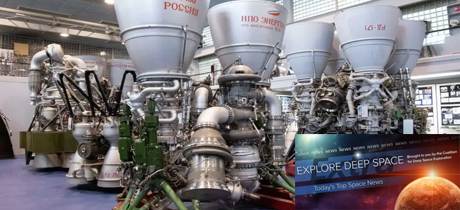In Today’s Deep Space Extra… How to search for life as we don’t know it. The U.S. Space Force reveals plans to extend its space reconnaissance from geostationary orbit to the Moon. LEGO rolls out Artemis set.
Space Science
How to search for life as we don’t know it
Universetoday.com (3/3): Researchers at Arizona State University’s School of Earth and Space Exploration are studying which scientific tools could be most effective in determining what exoplanets may have environmental conditions suitable for life. Currently, the count for exoplanets stands at 4,935 bodies in 3,706-star systems. Add another 8,709 planetary bodies awaiting confirmation of their existence. Studies of the planetary atmospheres could provide evidence for “biosignatures,” or deeper evidence for biological activity. The NASA-led James Webb Space Telescope (JWST), launched December 25, 2021 and now at its observing point about 1 million miles from the Earth, is being prepared to begin a biosignatures search.
Germany switches off black hole telescope on Russian satellite, halts space cooperation
Space.com (3/3): The German-built eROSITA black hole hunting telescope aboard the Russian-built Spectrum-Roentgen-Gamma satellite, which was launched in 2019, has been placed in safe mode, or turned off, by Germany’s Max Planck Institute for Extraterrestrial Physics in protest over Russia’s military incursion into Ukraine. The action was taken a week ago Saturday as Germany halted long-standing cooperation in science and research with Russia.
Other News
OneWeb suspends launches from Baikonur as repercussions from Russia’s invasion of Ukraine grow
Coalition Members in the News – Northrop Grumman, United Launch Alliance
Spacepolicyonline.com (3/3): Though a day away from its next Soyuz launch of small internet connectivity satellites, OneWeb on Thursday announced it was suspending all launches of the constellation’s components from the Baikonur Cosmodrome in Kazakhstan. OneWeb’s decision came in response to the latest round of demands from Dmitry Rogozin, the head of Roscosmos, the Russian space agency, following pronouncements of opposition from the West, including the U.S. and Europe, to Russia’s military intrusion into Ukraine. Separately, Rogozin responded to sanctions from the West by ending the sales of and support services for Russian RD-181 and the RD-180 rocket engines used respectively by Northrop Grumman for the core stage of its Antares rocket and United Launch Alliance (ULA) for the Atlas V.
U.S. Air Force sees no impact from Russia’s decision to cut off supply of rocket engines
Coalition Members in the News – Northrop Grumman, United Launch Alliance
SpaceNews.com (3/3): Speaking at the Air Force Association’s Air Warfare Symposium on Thursday, U.S. Air Force Secretary Frank Kendall said domestic national security mission launches will not be impacted by Russia’s decision to stop supplying rocket engines to the U.S. in retaliation for sanctions against Russia over the invasion of Ukraine.
The U.S. Space Force plans to start patrolling the area around the Moon
Arstechnica.com (3/3): The U.S. military plans to extend its space surveillance from geostationary orbit to beyond the Moon as more nations begin space activities in the cislunar realm and NASA develops its Artemis initiative to return to the Moon with astronauts and establish a permanent human presence. The extension will include the launch of the Cislunar Highway Patrol System, a satellite telescope. The U.S. Air Force Research Lab will oversee the satellite’s development. The U.S. Space Force will procure this capability for use by the U.S. Space Command. “Effectively, this satellite is the beginning of an extension of operations by U.S. Space Command from geostationary space to beyond the Moon,” according to the report.
LEGO rolls out Artemis toy sets ahead of new NASA Moon missions
Collect Space (3/2): LEGO has rolled out its version of NASA’s Space Launch System (SLS) this week, as the agency prepares to do the same with the real rocket and Orion spacecraft for a wet dress rehearsal. LEGO released the SLS and three other sets inspired by NASA’s Artemis program as part of an expansion to its City line. The new kits are based on the major components of NASA’s Artemis initiative, from the SLS to the Gateway, Moon base, and habitable mobility platform.
An out-of-control piece of rocket space junk is crashing into the Moon: Here’s what to know
Space.com (3/3): An aging rocket stage, believed to be of Chinese origin, was on course to impact the far side of the Moon on Friday at 7:25 a.m. EST, out of view of Earth-based telescopes as well as NASA’s Lunar Reconnaissance Orbiter (LRO). “The rocket body’s road to the Moon has been a tricky story to trace, however. Sources have variously pointed to a SpaceX Falcon 9 rocket, a Chinese rocket or perhaps some other vehicle,” according to the report. Regardless of the object’s source, the impact is believed to be unintentional.

